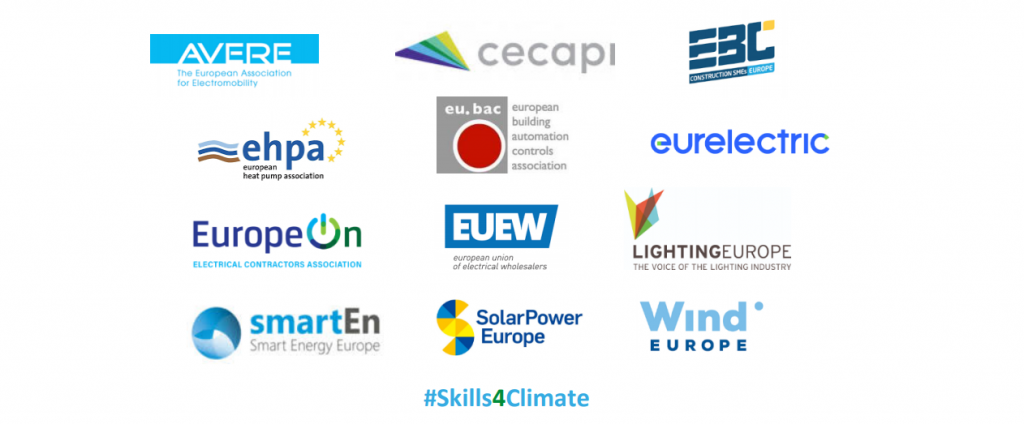The energy transition has been the focus of much regulatory effort and this trend is set to increase as the new Commission has just taken office with a renewed focus on climate issues and a European Green Deal in the pipeline. Underpinning this transition to a decarbonised economy is large-scale electrification. It is the main stepping stone towards carbon-neutrality and Europe must provide and prepare for the widespread use of electricity at once.
Whether is it in our building stock, accounting for 36% of the EU’s CO2 emissions, or the transport sector, responsible for another 30%, electricity is poised to be at the centre of this transformation. Decarbonisation through electrification translates into an abundance of decentralised and small-scale technologies, supplemented by recent calls for sector coupling that will extend electricity uses to cover most of our energy needs.
As regulators are investigating pathways to carbon-neutrality, focused on investing in switching from fossil fuel devices and technologies to electrified alternatives, investments in our human capital are generally overlooked. Ambitious climate targets are contingent on the large-scale deployment of sophisticated technologies, becoming increasingly digitalised and interconnected and relying on skilled professionals to carry out safe installations, followed by (sometimes decades-long) maintenance and servicing contracts. Such deployment strategies hinge on the availability of a skilled workforce able to support the smooth implementation of decarbonisation measures.
However, the electro-technical sector, responsible for carrying out these tasks, is currently experiencing a shortage of both skills and workers. This problem is two-fold as it has consequences for climate objectives as well as for employment strategies. The lack of electrical professionals creates bottlenecks to the rollout of electrical technologies, which will only increase as electrification progresses. Further, electrical contractors report vacancies and offer green and resilient jobs with good career prospects that should be considered when tackling unemployment.
The EU has already taken a first step in acknowledging this issue:
“A low-carbon transition is expected to increase the capacity constraint in the labor market, also because skills needed during the transition might be in short supply. […] The impact of the low-carbon transition will mainly take the form of new “green” skills within existing occupations. Occupational groups for which this transition will considerably change the task profiles are construction workers, electro-engineering workers, […], science and engineering technicians. […] The pace of change is set to accelerate” In-depth Analysis in Support of the Commission Communication COM(2018)773 “A Clean Planet for All”.
By addressing this issue, policymakers have the opportunity to solve two problems at once. They can ensure the availability of the necessary workforce of the energy transition while they provide quality jobs for their constituents.
The #Skills4Climate coalition, led by EuropeOn and gathering 11 major European associations from the electrical and construction sectors, has formed to highlight the current workforce and skill shortages in the electro-technical sector. This coalition calls on policymakers, at EU and national level, to consider the availability of qualified professionals and of adequate training opportunities when planning for the energy transition.
In order to increase the availability of needed electrical professionals and to ensure they are equipped with the right skills, policymakers should:
- Intertwine Skills and Climate strategies. Following climate mainstreaming policies, skills provisions should be embedded in climate strategies, such as the EU Green Deal, to ensure that the planned actions are feasible from a workforce perspective. Inversely, skills instruments, such as the ESF+, should have an emphasis on green jobs.
- Strengthen Public-Private partnerships. Early involvement of industry in the design and reform of education is essential to provide for the labour market orientation of training that will ensure students have the most relevant skills when entering the job market.
- Incentivize Technical Education, which is too often perceived as belonging to a lower tier compared to general education. Increased awareness of the bright career prospects in a green and sustainable industry, complimented by better recognition of vocational education and quality teaching staff will lead to increased enrolment.
- Incentivize Apprenticeships. The Swiss case shows how dual education can lead to highest employability and lowest youth unemployment thanks to labour market orientation of practical training and tertiary education outcomes.
- Incentivize Re- and Up- Skilling. Electrical contractors, most SMEs, should be supported in investing in their human capital to match the needed modern skills and to support career transition from, among others, fossil industries to green ones.
The signatories of the call for policy action are: AVERE – the European Association for Electromobility, CECAPI – the European Committee of Manufacturers of Electrical Installation Equipment, EBC – the European Builders Confederation, EHPA – the European Heat Pumps Association, Eu.bac – the European Building Automation Controls Association, Eurelectric, EuropeOn – the European Electrical Contractors Association, EUEW – the European Union of Electrical Wholesalers, LightingEurope, smartEn – Smart Energy Europe, SolarPower Europe and WindEurope.
Download the call to action here.

